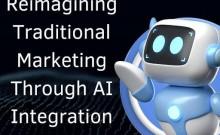
In today's world, the influence of artificial intelligence (AI) is ubiquitous, from assisting doctors in making quicker diagnoses to recommending the next TV show you'll binge on, and even in managing your finances. As AI becomes increasingly integral to our daily lives, the importance of these systems operating reliably and fairly cannot be overstated. A single small mistake, such as a biased algorithm or an overlooked error, can lead to serious, even life-changing, consequences. This highlights the critical role of quality assurance (QA) in the development of AI technologies. To gain deeper insights into the challenges faced and the significance of QA in AI, we spoke with Saurabh Kapoor, a Senior Quality Assurance Engineer at Amazon. Mr. Kapoor, who has been working at the forefront of this rapidly evolving field, shared valuable perspectives on the intricacies of ensuring AI systems are both effective and equitable.
Mr. Kapoor's journey into software quality engineering began over a decade ago. Back then, he was fascinated by how software systems interact and function. With an impressive career that includes stints at leading tech giants such as Accenture, Adobe Systems, Capital One, Oracle, and currently Amazon, Mr. Kapoor has immersed himself in the world of software quality assurance, with a special focus on the challenges presented by artificial intelligence (AI) system testing.
Traditionally, software quality assurance has revolved around the ability to trace logic and understand how various components work together. However, AI systems have introduced a new layer of complexity to this task. These systems often operate as a "black box," where the decision-making processes are hidden and not easily decipherable, even to the experts who create them. This opacity makes the role of quality assurance in AI not just challenging but also critically important.
"AI systems are used in critical areas that impact people's lives every day," he explains. "In healthcare, finance, or even autonomous driving, one small mistake can have major consequences." The stakes are high, and that's why quality assurance needs to be rigorous. It's not just about checking if the system works; it's about ensuring that it works correctly, fairly, and safely.
Quality assurance for AI involves tackling unique challenges. One of the biggest, according to Mr. Kapoor, is data quality. "AI models are only as good as the data they're trained on," he says. If the input data is flawed or biased, the AI's decisions will be too. Part of his job is to make sure that the data used to train AI systems is diverse, accurate, and representative of real-world scenarios. It's not just a technical task - it's an ethical one. For example, if an AI model for a loan approval process is trained with biased data, it could unfairly discriminate against certain groups of people. Addressing this requires a careful, hands-on approach to data validation.
He also points out that testing AI models is a whole different ballgame compared to traditional software. Rather than just checking if specific features work, validation of the model's overall performance and adaptability is a must. AI systems are dynamic, they learn and evolve over time, which can change their behavior in unexpected ways. "AI systems need continuous testing and monitoring," he says. Unlike traditional software, where a one-time testing phase might suffice, AI requires an ongoing commitment. Mr. Kapoor talks about setting up continuous integration and delivery (CI/CD) pipelines that include automated testing at every stage of the AI model's lifecycle. This way, it can quickly catch any changes in behavior and address them before they become bigger problems.
Then there's the issue of bias. AI models often reflect the biases present in their training data, which can lead to unfair or unethical outcomes. "Testing AI for bias and ethical compliance is a top priority," he says. This goes beyond the usual technical requirements of software testing; it's about ensuring that AI makes fair and just decisions. He talks about the need to constantly mitigate these biases, knowing that QA job is not just to ensure AI functions, but that it does so ethically.
But the biggest challenge, he notes, is the dynamic nature of AI. Unlike traditional software, which is largely static once it's deployed, AI systems change over time as they learn from new data. This means that quality assurance isn't a one-and-done deal- it's an ongoing process. "We have to be constantly vigilant," he says. He emphasizes that QA must be integrated into the AI development process from the beginning. Getting QA involved early helps identify potential issues before they become deeply embedded, saving both time and resources in the long run.
Looking ahead, Mr. Kapoor sees the role of quality assurance in AI only growing in importance. As AI continues becoming a part of everyday life, QA must be more predictive and proactive. The technology itself will likely evolve to include AI-driven QA tools that can help identify potential issues before they arise. But even as automation advances, he believes that ethical considerations will remain at the forefront. "As AI takes on more responsibilities in sensitive areas, ensuring it operates within ethical boundaries will be a key part of future QA strategies," he explains.
Mr. Kapoor underscores that quality assurance in AI is about more than just ensuring systems function correctly. It's about ensuring that these systems are fair, ethical, and adaptable in a rapidly changing world. It's a challenging job, but the stakes couldn't be higher. As AI continues becoming an essential part of our lives, knowing that experts like Saurabh Kapoor are dedicated to maintaining its integrity is reassuring.









